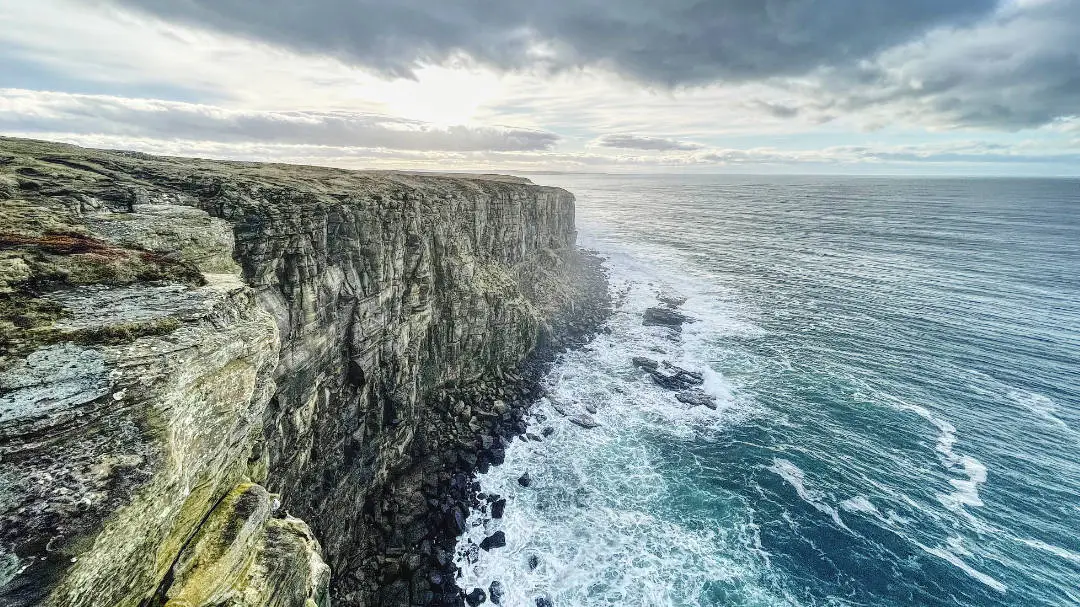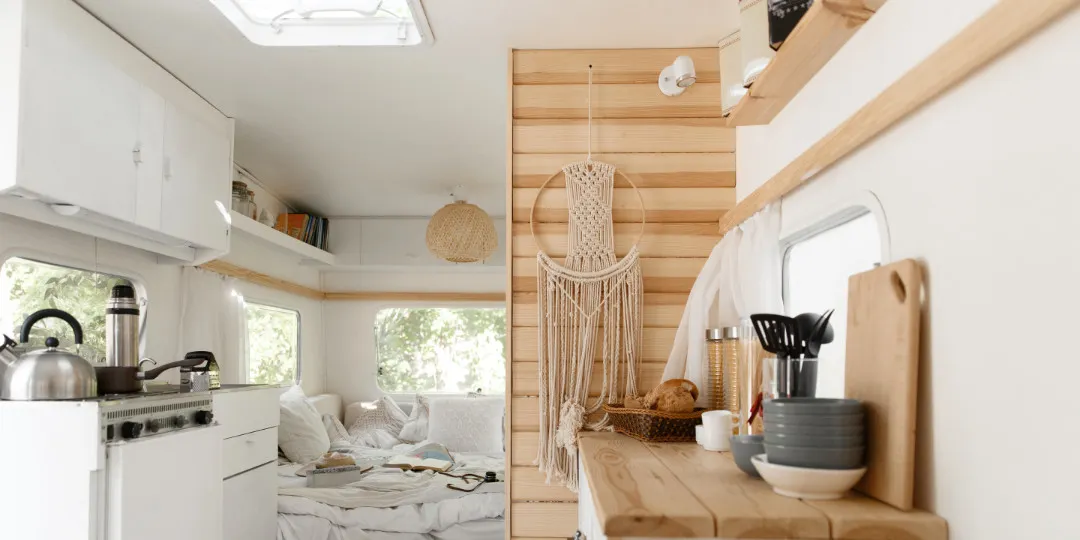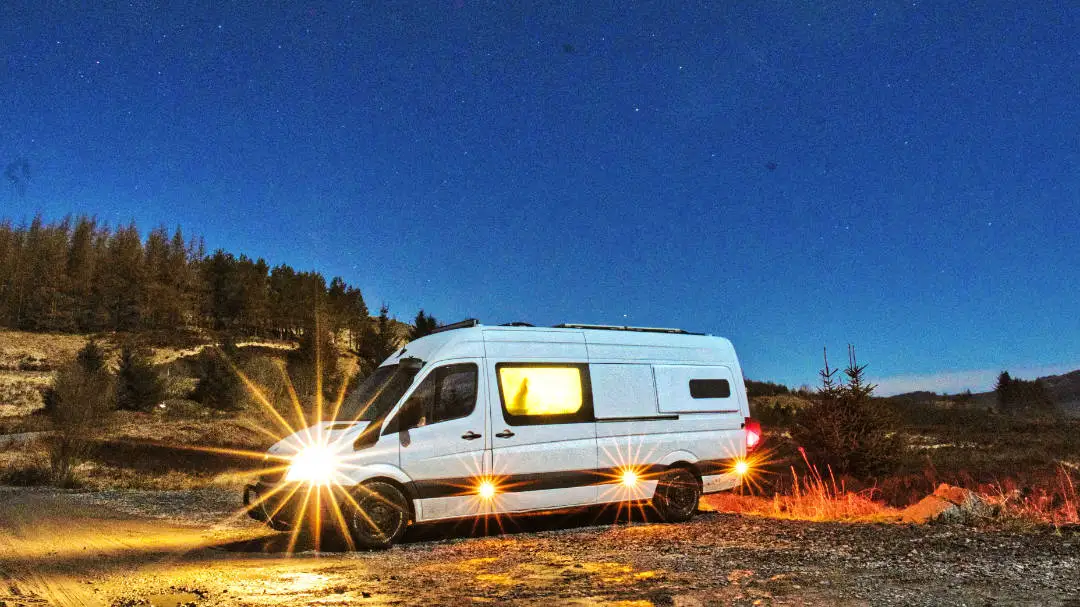Van Life Essentials
“van life noun. Living full or part-time out your campervan, caravan, or motorhome.”
Vanlife (or is it van life?) has exploded over the last few years and is definitely on an upward trajectory. motorhome and campervan holidays have increased in popularity over the last few years. Whether that’s to do with the rise in costs of holidays and living, and restrictions around travel over recent years: living out of and travelling in a motorhome or campervan is fast becoming more than just a trend and more of a way of life. motorhomes, caravans and campervans have always been a much-loved way to travel. The versatility of van life allows and caters to every demographic, budget, and lifestyle you can think of.
The beauty of van life is that it comes in all shapes and sizes. There really is something out there for everyone. From motorhomes, campervans, caravans, pop-top vans, RVs, overlanders, converted vans, trucks, and buses your choice is endless and your dreams can really run wild! Van life can be unique to you and fit all your needs. We lived full-time for over a year in a caravan back in 2015 and now we live full-time in a converted LWB Mercedes Sprinter van, both times with our pets.
There are almost 3 million tags for van life on Instagram. While social media plays a big part in selling the van life lifestyle and the glamorous nomad image, the reality is far from this. Just ask anyone that has ever had to empty a cassette toilet! However, there is no other way to travel quite like in a motorhome and campervan. The sense of convenience is unparalleled, it’s an affordable way to travel and the freedom is like nothing else you’ll experience.
For the most part, van life can be tricky, inconvenient, challenging, and definitely not suitable for everyone! It’s a comfort level upgrade from camping, and there are many things you should know before you drive off into the sunset. This complete guide will educate you on vanlife in 2023.

Family Portrait

interior design of our van
Table of Contents
Test drive van life
This is the absolute best tip: try before you buy. If you are thinking about van life, either for a holiday or a way of life we could not recommend this more. Rent a motorhome or camper to see what it is like and if it is right for you. It is really important you know what you are getting yourself into with van life: the good, the bad and the downright ugly. If you have no experience with caravans, camping and motorhomes then I would recommend having at least a few weeks of experience travelling in a motorhome/ campervan. Before we bought and converted our van, we spent over a year living in a caravan and that experience definitely shaped what we wanted and what to expect from van life and living in a campervan.
Is van life for you?
The first thing to think about is whether or not van life is for you. You need to ask yourself the following questions: can you handle your own toilet business and clean a cassette toilet? Can you go for a few days (at least) without a shower? Are you ok with changing your travel plans on the fly? and are you good at dealing with change and adaptability? These are just a few of the questions you have to ask yourself and answer, really truthfully because when you do van life, these are your new normals.
Weekender, full time or part time?
Once you have asked yourself some deep questions on van life, you will be able to figure out what type of van life you would be open to doing: full-time, part-time, weekender or holiday? Figuring out how you plan to use your campervan or motorhome is going to help you plan, organise, and decided whether or not van life is for you. If the thought of going on a holiday to a muddy, wet campsite without luxury showers and toilets is your idea of hell, you will know that full-time van life may not be for you. Also if you are planning on full-time travelling and living, you may need a bigger and more comfortable van or motorhome, especially if you have a big family, or kids or are travelling with pets. All of these are important things to think about before committing to van life.
Type of van to choose?
You will also have to decide what type of vehicle to get. whether you’re more of a weekend camper or a full-time nomad, is going to decide the van type. Budget is a big factor but so is figuring out your priorities, on your road. Can you live with fewer belongings and more space without installing a garage? Are you travelling with pets? Will you potentially work from your campervan and need a decent space for that? Do you plan to do a lot of off-roading?Knowing these answers will help you pick the right vehicle, make and model.
The van life culture & community
One thing about van life is, it has an excellent community spirit. The van life community is really exceptional in that way. They are truly a lifeline and as supportive as they come. If you are starting out in van life, and want to find like-minded individuals reach out to community blogs, Facebook groups, social media accounts and van lifers on Instagram. Before you know it you will have friends from all over, who are more than happy to help.
Best time to van life?
This is a really loaded topic. Choosing where to van life and what season to do it in is really important. It can really make or break your time. Van life in adverse weather can go from pleasant to horrendous in the flick of a switch. It’s important that you do some research and think about the best way in which you can stay comfortable: For example, if you mainly want to do van life in the Mediterranean in the summer you are going to need tools to stay cool, maybe that means installing two fans instead of one or investing in a larger water tank or choosing to stay on campsites. Likewise, if you plan on taking your van away for ski seasons you are going to perhaps need things like snow tyres and snow chains, extra insulation and a really good heating system. Deciding what season to do van life in really requires a lot of thought , planning and organisation.
The seasons and van life tips
Each season has something new to offer. being exposed to the elements all the time means knowing what to expect every new quarter. Here are just a few tips for the changing seasons:
Spring
- Make sure your van is leak-proof from all those spring showers and rain.
- Invest in good quality all-terrain tyres; Rain=mud and potentially getting stuck.
Summer
- Have extra water; a bigger tank or jerry cans for the heat.
- Think about windows in your van for extra ventilation
Autumn
- it gets darker earlier, invest in extra security and lights or torches to stay safe.
- Think about what you will need for winter; i.e snow chains
Winter
- You may be in need of snow chains and snow tires for the conditions you are travelling in.
- Think about the insulation you may need to stay warm.
- Think about how you will stay warm, what type of heat source will you invest in?
Where to do van life, at home or abroad?
Part of the appeal of van life is to be mobile, free and to travel. This is easily doable in most places. Many people choose to spend the British winters in a warmer climate and opt for a place like Spain, Portugal, Greece, Morocco for winter. Things to consider if you are planning on van life abroad:
Length of stay
Doing van life abroad the length of stay in the country or area: after Brexit anyone with a British passport (same goes for Candian and American Passports) are entitled to a 90 day stay in every 180 days. Theres a saying in the van life community called the Schengen shuffle which is the art and calculation of traveling in and out of the Schengen zone.
Best times to visit
Places like Spain, Greece, Croatia and Portugal get incredibly congested in the summer and expecting to wild camp in your motorhome and campervan can be a bit of a disaster. As well as this the weather during each season can severely impact your overall experience and enjoyment of van life, so this wisely about where to go and when to go.

wild camping in Cappadoccia
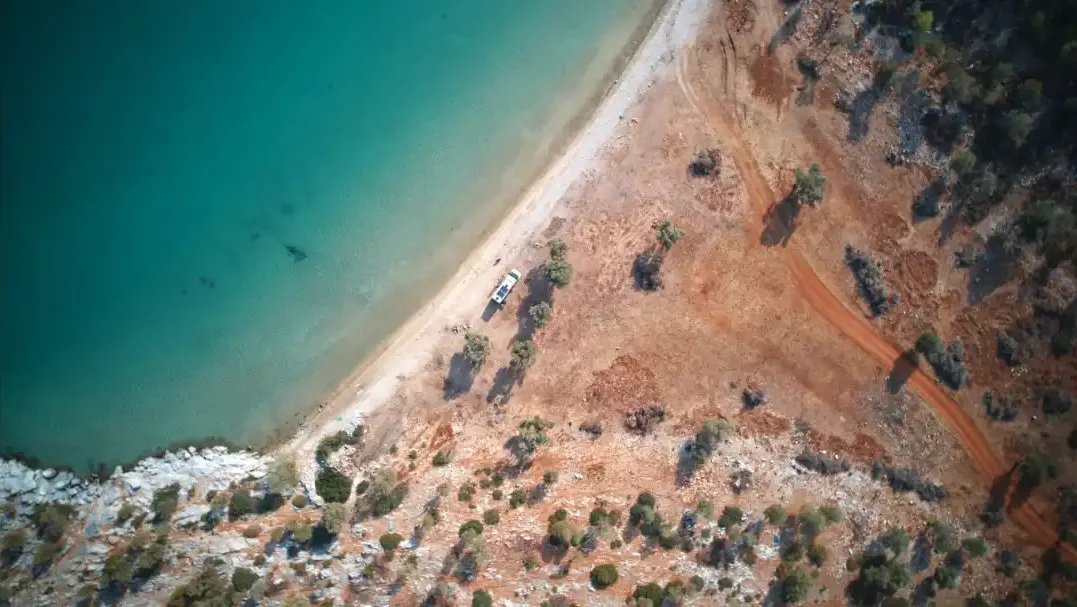
Van Life at the beach
Van Life Essentials
MOT and driving restrictions
Borders in Europe & the Schengen Zone
As touched base on this before. If you are planning your van life journey to spread into Europe you may need to check the information on your visa requirements. As a rule of thumb post-Brexit for British passport holders, you are entitled to a 90-day visa within every 180-day period within the European Schengen zone. There are 44 countries in Europe with 27 countries in the Schengen zone. Once you have stayed 90 days in the Schengen area you will need to leave for 90 days before returning. Watch out for countries that are in Europe, but not part of the Schengen area but have the same Schengen requirements like Gibraltar. Here are a list of Non-Schengen countries you can retreat to in your van if you are waiting on your 90 days to start back up. Countries like Tunisia, Turkey, Georgia and Morocco are also popular due to their proximity to the European continent.
- Bulgaria
- Romania
- Cyprus
- United Kingdom
- Albania
- Armenia
- Azerbaijan
- Belarus
- Bosnia & Herzegovina
- Macedonia
- Moldova
- Montenegro
- Serbia
- Ukraine
Navigating the roads
- Driving in The UK
Is relatively straightforward, with a well-developed road network and clear road signs. However, there are a few things to keep in mind to ensure that you drive safely and legally: - Drive on the left-hand side of the road
This is a unique feature of driving in the UK and can take some getting used to, especially for drivers from countries where people drive on the right-hand side. - Know the speed limits
Speed limits are clearly signposted and vary depending on the type of road you are driving on. It is important to abide by the speed limit to avoid getting fined or causing an accident. - Speed Limits in the UK are
30mph in urban areas
60mph on main single-carriageway roads
70mph on dual carriageways and motorways - Use seat belts
Wearing seat belts is compulsory for drivers and passengers in the front and back seats. This is also true for restraining pets in vehicles. - Drink and drug driving
The legal alcohol limit for driving in the UK is 80 milligrams of alcohol per 100 millilitres of blood. Driving under the influence of drugs is also illegal. - Give way to pedestrians
Pedestrians have the right of way at marked crossings, so it is important to be aware of your surroundings and give way to pedestrians when required.
Overall, it is important to drive responsibly, obey the road signs, and be mindful of other road users to ensure a safe and enjoyable driving experience in the UK.

Black water and grey water tanks
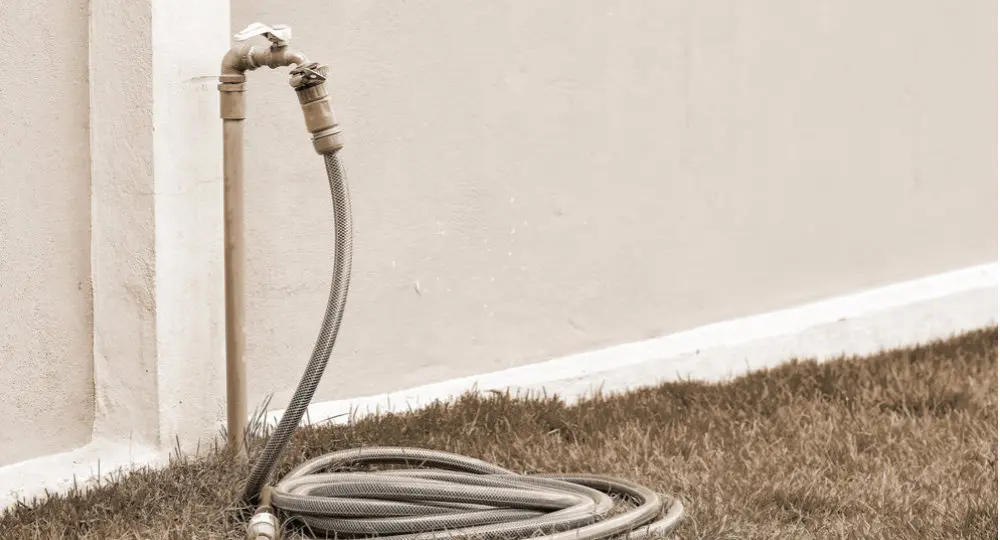
filling up is best with a long hose

water fill up
Parking
Parking in the UK; For an in-depth guide to free parking in the UK check out.
The Insider's Guide to Wild Camping in a Campervan and Motorhome: UK Edition
Experience the freedom of wild camping in the UK. Get tips and insights on the ultimate campervan or motorhome adventure. Start planning today.
Ultimately you will be able to find a lot of areas to park all over the United Kingdom. These come in plenty of varieties: free parking, paid for, day parking, overnight, rest areas, service stops, and the list goes on and on. Depending on the area you are in, your local authority and the country you are in you will find many different rules and regulations so double-check whenever you arrive at a new place.
Here are some great parking apps:
JustPark- find parking wherever and whenever you need it.
RingGO- pay for parking without cash.
Parkopedia- Find parking spots all over the UK with this map.
Van life road trips
There are so many magnificent road trips to experience in van life and on your travels. Some can be done over a day or weekend and others a longer holiday. Some of the best we have experienced are:
Britain and beyond
- Causeway Coastal Route
- NC500
- Argyles Secret Coast
- JOGLE
- Wild Atlantic Way
Europe
- The French Riviera
- Transafaragsan
- Great St Bernards Pass
- Bucharest to Vienna
Must have apps for van life
Here are some of the must-have van life apps that make life on the road so much easier:
Outdoor environment
Each country has specific rules on how to get the most out of your time outdoors. In the UK the outdoor country code is governed by each individual region: Scotland, England, Wales and Northern Ireland. In Scotland, we have the Outdoor access code which can be quite different to the outdoor laws in England, Wales and Northern Ireland. That’s why it’s really important to do your homework about the rules and regulations for the places you visit if you intend to wild camp, hike or enjoy the outdoors. Check the English, Northern Irish and Welsh outdoor guides here.
Wild camping & overnight parking
Are you allowed to stay overnight in your van on the road? Technically yes.
Are you allowed to park for free and overnight park anywhere you want?
No, BUT you just have to be smart and clever about how you go about parking and overnight parking.
Remember that Scotland, England, Northern Ireland, and Wales all have different laws, so depending on where you are, different rules apply. We wild camped and stayed overnight for free in most of the places we went in the two months we spent around The UK. It is entirely doable. Just be aware of what the local authority and traffic regulations are in the area that you have stopped in. Always check the local signage and parking information. There is no technical legal right to park beside the road and aside from the laws in Highways Act 1980 and the Caravan Sites and Control of Development Act there are no laws that specifically prohibit it either. From experience, we found our time overnight parking and wild camping in the UK to be absolutely fine and mostly enjoyable. For most of the time we used the app park4night to find and locate spots.
Van life and campsites
Campsites can become a bit of a lifeline for van life as they always provide a safe place to sleep, a place to hook up to electricity (if you need that) and a place to do your services: (water, emptying your grey and black water waste, disposing of rubbish) and usually a place you can have a long hot shower. Sometimes visiting a campsite is more of a necessity than a choice if you have been on the road for too long and haven’t found any places to do your services. The UK has more than 3000 listed on campsites.co.uk alone! The range of prices differs on the type of campsite facilities and the area. As a standard, campsites generally have access to clean potable water for refilling, grey, and black water disposal, toilets and showers, and a place to bin your rubbish. Quite often you will find extras like laundry facilities and an on-site kitchen.
If you are travelling in mainland Europe you will come across aires. Especially in places like France, Germany and Spain. They are motorhome and campervan designated parking places where you have access to some services. Aires can either be free or paid for but usually at a very minimal cost compared to a campsite. Aires are fantastic if you are fully self-sufficient and just need a few services whilst you are on the road. Britain hasn’t quite adapted to motorhome/campervan culture and travel as well. You will mainly need to go to a campsite to dump your grey and black water and fill up.
There is a guide called Britstop which is an alternative to campsites. You pay £28 for a guide annually and there is a map of places you can stay safely overnight at for free. Britstop lists over 1100 places which are all diverse and unique locations. Some will have no services but some will have all the facilities you will need.

Avoid these signs

Wild Parking in Scotland
Shopping, supplies and amenities
There are many places in the UK where you can find supplies for your campervan or motorhome. Some popular options include:
- Specialist campervan and motorhome retailers
There are many retailers in the UK that specialize in campervan and motorhome supplies. They offer a wide range of products, including camping equipment, cooking supplies, bedding, and electrical accessories. - Caravan and camping stores
Stores that cater to caravan and camping enthusiasts often stock a range of supplies for campervans and motorhomes, including tents, sleeping bags, and portable toilets. - Online retailers
Online retailers, such as Amazon and eBay, offer a convenient way to shop for campervan and motorhome supplies. You can find a large selection of products, including camping gear, outdoor furniture, and kitchen supplies. - Supermarkets and hardware stores
Supermarkets and hardware stores can also be a good sources of supplies for your campervan or motorhome. You can find essentials such as food, water containers, and cleaning supplies. - Petrol stations
Some petrol stations have a small selection of campervan and motorhome supplies, such as bottled water, gas canisters, and food.
It is a good idea to plan ahead and research the best places to buy supplies for your campervan or motorhome. This will help you find what you need at the best price and ensure that you have everything you need for your trip.
Van lifestyle tips
This one is common sense: Bin your litter or take it with you if there are no bins in the area you are parked in. Part of the appeal of being a van lifer is to be close to nature, so it’s important to respect, and keep our environment tidy and clean, leaving no trace that we were ever there! Always bin your litter, pick it up after your dog and leave the area how you found it, or even better than you found it by picking up any litter in the area.
Go biodegradable and natural
To limit the strain on the environment use biodegradable washing-up liquid. Try to use natural shampoo, soap, and body wash where you can and biodegradable second. Remember for products to be labelled biodegradable; 90% of their components need to be able to degrade into the soil or the environment within 3- 6 months. So try using natural products as much as you can over biodegradable ones.
Public toilets
Water taps

Leave no trace

LPG pump
Grey and black waste
Grey Water
The term “greywater” is used to describe; shower water and sink water waste. It is collected into a tank underneath your van or if you are in a caravan you will have a pipe that drains straight outside. The size of grey water tanks varies from smaller ones for small campers and up to 100 litres or more for campervans and RVs. We have a 75-litre grey water tank and although it may sound like a lot it actually fills up quickly when you are full-time on the road.
If your tank is contained, you will need to drain it as it gets full. If you are in a caravan you will need a bucket to collect the greywater straight from the pipe and dispose of it down the correct drains. To empty your campervan greywater you will have to drive to a special greywater disposal or find a non ‘storm drain’ drain that drains straight into the sewer to dispose of your greywater waste. You may be able to find some free public greywater disposals but they are mainly only available at motorhomes and caravan parks and sites for a small fee. For that fee, you usually get access to greywater waste, empty your toilet, and fill up fresh water. You can always dispose of your grey water waste down the drain of a public toilet. There is an app called CAMPA that helps you to find disposals near you.
Black water waste
Ahhhhh the dreaded black water waste; also known as toilet waste! Probably the most hated thing about van life. Most RVs and motorhomes will have a self-contained plumbed-in toilet with a cassette underneath. The cassette part is the removable bit you take out, dump out and clean. Most van lifers without a plumbed-in toilet use some sort of “porta-potty, or portable loo,” which is the same thing just not attached to your van. Campervan toilets work by putting in two types of chemicals, one chemical sits in the cassette and breaks down waste, bacteria, and gas and the other is a toilet rinsing fluid. Once full these chemicals along with your waste need to be disposed of at blackwater disposals or straight into a toilet that connects to the sewer, not a septic tank. Sometimes you will find a free and public black water disposal point but mostly (in the UK) you will have to rely on paid facilities at campervan and caravan campsites. You can also use public toilets to drain your black water, as long as they drain into the main sewer and not a septic tank. Try to do it when the toilet is quiet, people give you funny looks when you walk in with a cassette.
LPG
LPG gas tanks come in either butane or propane and in lots of sizes from mini ones to take on a hike to behemoth-sized underslung tanks up to over 70 litres. With the bigger and attached tanks, you will need to refill them instead of replacing them when they are finished, potentially making them just a little bit more sustainable. This is a relatively easy process, you just need a special connection valve to attach to the head of the LPG Gas Hose. LPG isn’t available from all petrol pumps but here is a list of LPG gas providers in the UK. Replacing and exchanging gas tanks is much easier as they are available at lots of petrol stations and some supermarkets as well as outdoor stores and campsites.
Our experience: We have a 55-litre LPG gas tank that lasts a very long time. We only use our gas for cooking. Last winter we never had the boiler or heating on which saved on gas. We have only topped up our tank twice and have been on the road for over 7 months. In the summer months, we don’t cook as much as in the winter months which also saves on gas. We do however buy small camping gas canisters often for our Jet boil, although small you do get a lot of use with one.
Petrol stations
Cellular networks and wifi
Just like a house you want to be able to stay connected. Depending on your needs, if you are only part-time in a van then you might not want to splash out on a mobile wifi router and can use tethering from your phone instead. If you are full-time and plan on working remotely you are going to need a good mobile wifi router and a sim card from a cellular network that has quality coverage. The best sim in the UK is EE, they seem to have the best coverage and the prices are fair for monthly usage. The things you will need for getting connected are: a mobile router and an ariel or Poynting to receive signals in remote places. The best mobile router to get from research and experience is any of the Netgear Nighthawk models. We spent months figuring out which brand to go for and finally after much research went with the Netgear Nighthawk M1 and it’s a game-changer! To receive signal to the router we are using this ariel pointer, which so far has been excellent. We have gone with an EE pay-as-you-go sim and it is well fair priced and the coverage is great.
Essential van safety
Van security is not a topic to take lightly. If it’s the biggest thing to take away from this article is this: you need a good solid security set-up. That means investing in your van security. Some things to think about and a few recommendations are:
- Invest in extra locks and deadbolts for the doors
- Install window bars on the inside of the van.
- Invest in a good quality safe; one like Vanvault.
- Use a steering wheel lock and a pedal lock
- Install 360 cameras
We were broken into in the South of France in a place called La Ciotat. We parked our van at a parking bay near a viewpoint of a beach. We left the van for no more than 10 minutes and found a smashed side window when we returned. Fortunately, they never made it into the van as we have a guard dog that scared them off and they never managed to steal anything. Even if they had made it into the van we religiously leave all our valuables in our van vault. It is a fantastic piece of kit, almost impossible to break into for a thief. We wholeheartedly believe it is worth every penny of the investment. You got to protect your valuables. Although we didn’t have anything stolen when we were broken into, we did have to deal with the inconvenience of getting a window replacement sent out to France. In the meantime whilst we were waiting on the window, we put temporary wooden bars on the window frames to be extra safe, we actually haven’t removed them since because they have provided just an extra level of security. We can take the bars off easily as they are just attached by locks.
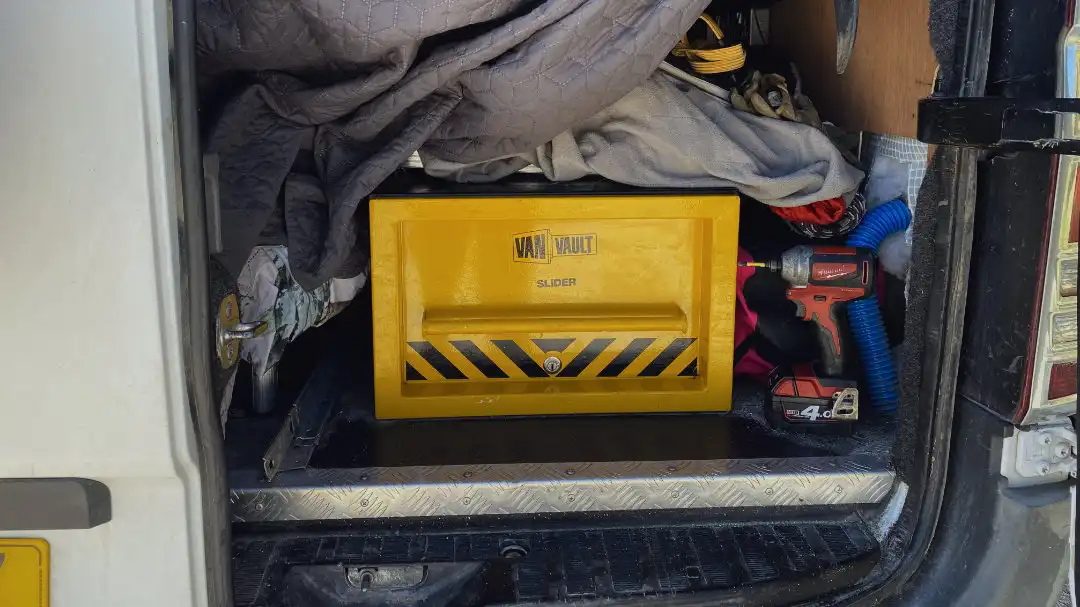
Van Vault safe
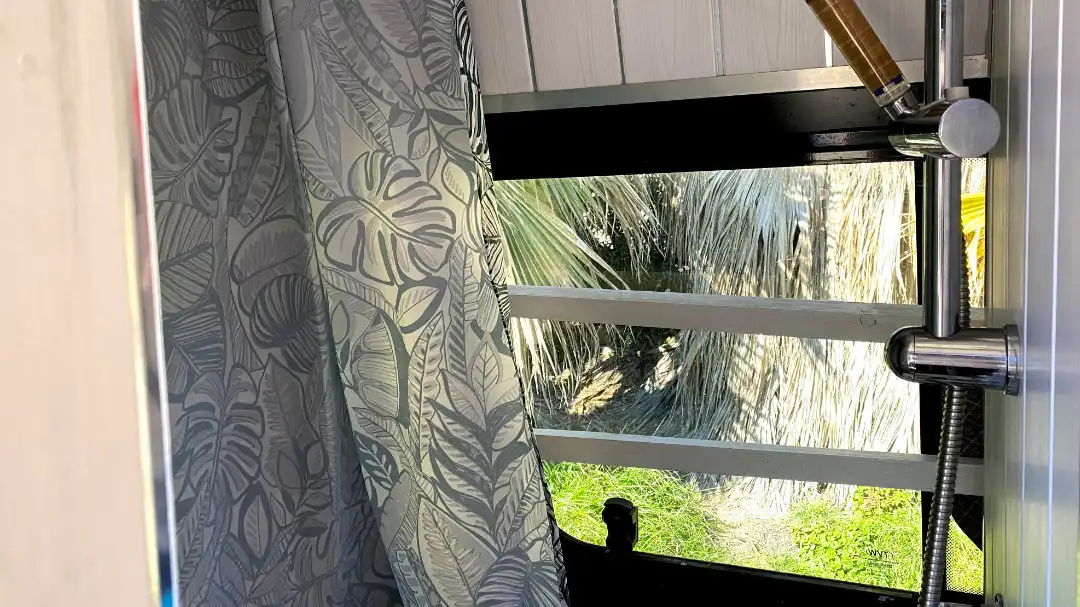
temporary security bars
Van life with pets
If you are anything like us and you don’t want to leave your fur family behind! Join the van life pet crew. We travel with our dog and two cats! Depending on where you go here are some tricks for van life and travel with pets on the road:
- Have crates and carriers handy for long journeys, border crossings and ferries.
- Have pet seatbelts or restraints on pets whilst the vehicle is moving.
- Contact your old vet, for previous pet records.
Make sure you have the following requirements when travelling in Europe
- Up-to-date medications and vaccines
- Microchipped
- Valid rabies vaccine
- Animal health certificate or Pet passport

Our 3 pets

Hamish asleep at the wheel again
We hope you enjoyed reading as much as we enjoyed wirting, please feel free to sign up or leave a comment below if you enjoyed the read!
